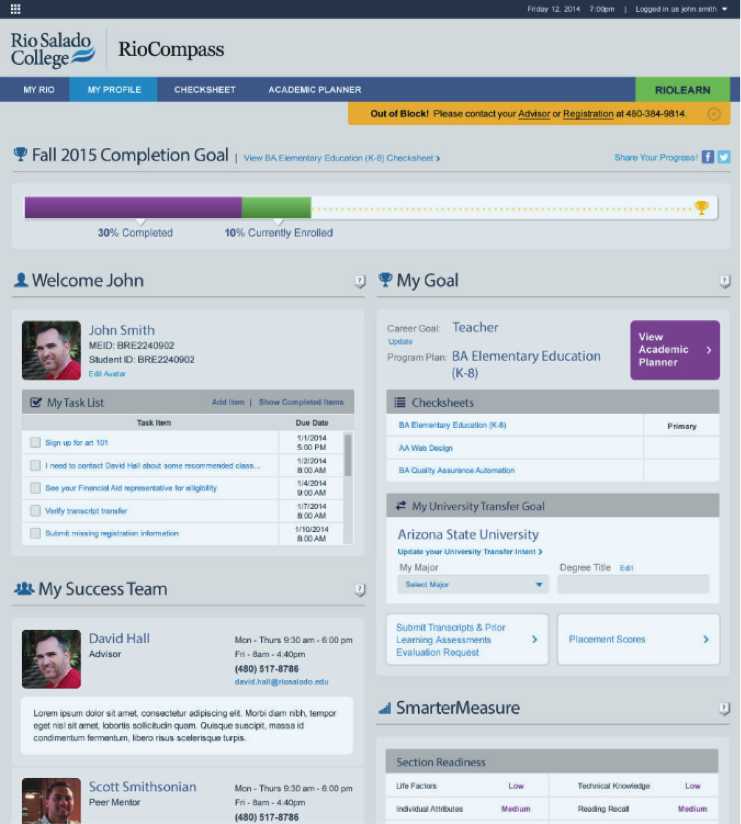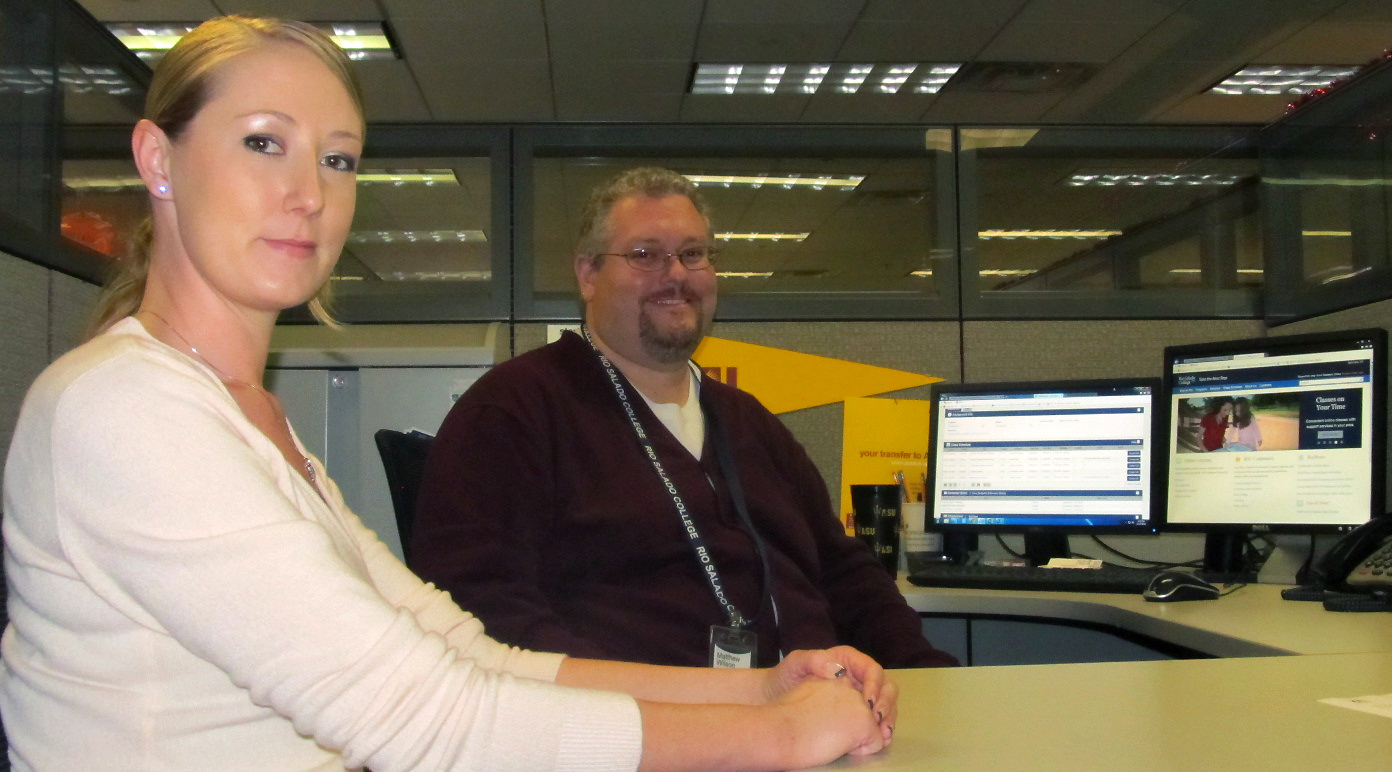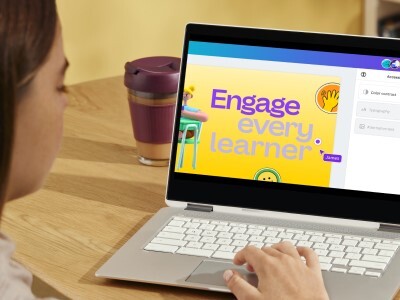Technology Tools
RioAchieve: Using Technology to Increase Retention & Completion at Scale
Topics

Educators often take advantage of educational technologies as they make the shifts in instruction, teacher roles, and learning experiences that next gen learning requires. Technology should not lead the design of learning, but when educators use it to personalize and enrich learning, it has the potential to accelerate mastery of critical content and skills by all students.
We can hypothesize that interventions such as ‘intrusive’ advising and mentoring can help students successfully complete a course or program, especially in an online environment. But as student-to-advisor ratios grow, how can this high touch model be sustainable?
Student success can be measured in many ways. Successful course completion is one: does the student finish the course with a “passing” grade? Persistence is another: does the student continue taking courses from one term to the next? Retention can also measure success, as in does a student stay in his or her course through the end? How about retention in a program of study? Finally, what higher education institutions strive for: program completion. Does the student finish and ultimately earn a certificate or degree?
We all know there is no magic bullet when it comes to retention and completion. We can hypothesize that interventions such as ‘intrusive’ advising and mentoring can help students successfully complete a course or program, especially in an online environment.
But as student-to-advisor ratios grow, how can this high touch model be sustainable?
Thanks to a Next Generation Learning Challenges grant, Rio Salado College has answered this question by developing the RioAchieve program for all degree-seeking, Pell-eligible students. RioAchieve’s five specific interventions promote student success, retention, and completion, supported through technological innovations that allow them to be delivered in a scalable, sustainable manner.
How RioAchieve Works
- A Completion Portal (known as RioCompass) allows students to monitor progress toward degree completion. Students are able to upload transcripts for review, choose a degree program, and communicate with a dedicated advisor and peer mentor. When a student logs in, he or she can see at a glance their advisor’s and mentor’s contact information, their stated educational and career goals, and a graphical representation of their progress toward their degree. Staff are also able to monitor student progress and track contact notes using this system.

- An Intervention Dashboard (called GIvR-Guided Intervention and Response) collects data from several areas of the college, which will then automatically alert appropriate staff to implement an intervention. The data have been identified and include activities such as calls to the technology helpdesk, course grades, placement test scores, and instructor notes. These data are collected, displayed, and monitored by the student’s advisor and faculty. Many interventions are automated to increase efficiency and scalability.
- RioPACE (Progress and Course Engagement) is Rio’s predictive analytics system. This model tracks student login frequency, site engagement, and progress in the course. Based on these data, an indicator in the grade book displays indicating how the student’s behavior aligns with successful student behavior in the past. RioPACE data are also used as triggers in the GIvR system and can be viewed by advisors and other staff members through RioCompass.
- GEAR (Guided Evaluation Assessment Response) is a technology-based, faculty-developed solution that assists faculty in providing customized, personalized, detailed feedback to students on their assessments. The technology behind GEAR provides a template for rich, meaningful feedback so instructors have the time and resources to expand and personalize their comments to the student.
- The Student Success Helpdesk is staffed with a Student Success Coordinator, dedicated advisors, and peer mentors, providing the high touch, intrusive advising and mentoring. Peer mentors must be current Rio Salado students, have been at Rio for at least a year, and are in good academic standing. Many of the activities of the advisors and mentors are now automated through the technologies mentioned above, allowing them more time to personally connect with their assigned students.
Preliminary results from these interventions are promising. Fall to spring persistence rates of the grant population are 11.8% higher than those of the comparison (or control) cohort. Course success rates (final grade of A, B, C, or P) are nearly 9% higher in the RioAchieve grant population than the comparison Pell cohort. RioAchieve students have also demonstrated higher overall GPAs than the comparison group.

RioAchieve Advisor Matt Wilson with Rio Salado student Danielle Hess.
So promising are these results, in fact, that leadership from the Bill & Melinda Gates Foundation has taken notice. In November 2014, a team from the Foundation, including Sue Desmond-Hellmann, CEO, Allan Golston, President, and Daniel Greenstein, Director of Education, Postsecondary Success visited Rio Salado College. The team brought with them a very special guest—Bill Gates himself, who went on to write a blog post called “Online, All Students Sit in the Front Row” after his visit. Several of the RioAchieve students Mr. Gates met with are also featured in the Bill & Melinda Gates Foundation Postsecondary Success newsletter.
While we do not claim to have found that magic bullet, we feel these interventions are making a difference for our students as they work toward their college and career ambitions. The use of technology supporting the high-touch personal contact is a more scalable and sustainable model than either technology or human resources alone. Our goal is simple: successful completion. We believe the RioAchieve students are well prepared and supported to meet this goal.
Learn more about Rio Salado College in this NGLC brief.
Top photo: © Bill & Melinda Gates Foundation/Mark Makela




